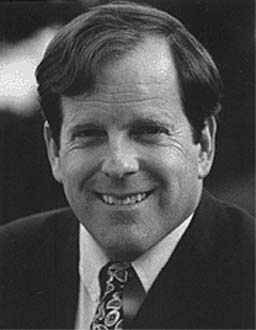
"As long as the U.S., Europe, and China are not installing enough renewables, they'll be competing to get the manufacturing put inside their borders, and we'll teeter from trade war to trade war. But the wind in the Dakotas can only be harnessed in the Dakotas, and the hot sun of India's Thar Desert can't be shipped to Miami -- so there is no reason for a trade war if all the parties are building renewables to scale and the struggle is to get to the head of the order line for scarce components." Sierra Club President Carl Pope served as a Peace Corps Volunteer in India in the 1960's.
Carl Pope writes: Scale, Scale, Scale
Scale, Scale, Scale
In my previous post, I quoted Bill Clinton as decrying our tendency to "piddle around" in tackling the energy and climate challenge. The second big takeaway from the National Clean Energy Summit in Las Vegas this week was this: Scale solves all problems. The morning after the summit, I spoke to the board of the American Wind Energy Association. They were concerned by proposals to broaden the definition of renewable fuels to include efficiency, gas, and nuclear. I pointed out the reason for this dynamic -- coal and oil want to keep their market share, so they are saying to everyone else, "You get to split 20 percent." If we had a big-enough and ambitious-enough clean-energy agenda, then wind manufacturers and gas drillers would be rushing to fill their orders, not trying to cut into each other's slice of pie.
The same phenomenon is true globally. As long as the U.S., Europe, and China are not installing enough renewables, they'll be competing to get the manufacturing put inside their borders, and we'll teeter from trade war to trade war. But the wind in the Dakotas can only be harnessed in the Dakotas, and the hot sun of India's Thar Desert can't be shipped to Miami -- so there is no reason for a trade war if all the parties are building renewables to scale and the struggle is to get to the head of the order line for scarce components.
Historically, there has been a conflict about job training -- if glazer's jobs are in short supply, then those who are already trained to install windows will be less thrilled to have a whole new generation of the unemployed offered job training and put into competition with them. But if we are, as we should be, replacing every window in North America in a decade, glazer's will want all the help they can get. It is ambition and scale that create collaboration and enable a virtuous politics to replace the divisive politics of beggar your neighbor.
And the clean-energy revolution just begs to demonstrate the virtues of scale. Marc Porat, the chairman of Serious Materials, which makes the most innovative high-performance windows in the country, commented that we are currently doing "deep renovations" in which a home gets a full energy upgrade at such a slow rate that it will take us 10,000 years to modernize our built environment. Clinton then pointed out that even at President Obama's much accelerated goal of a million upgrades a year, it would take 100 years to finish the job. And here we are sitting in a state where building-sector unemployment is headed to 50 percent. Clean energy ought to be for Nevada in the 21st century what silver was in the 19th -- the foundation for building a state.
On the day the summit closed, some visionaries in the Northwest made it clear that clean energy will be to that region what salmon, timber, and hydro once were The Northwest Power Planning and Conservation Council, a collaborative public-private partnership, released a blueprint showing that 85 percent of its new electricity needs over the next 20 years can be met solely through conservation, and that doing so will be half the cost of building new power plants.
Whenever you hear a good clean-energy idea suggested, and someone else recommends doing half of it, or phasing it in, or going slowly, you should be very, very suspicious. When it comes to building a new energy economy, getting to scale requires efficiency, not moderation.












